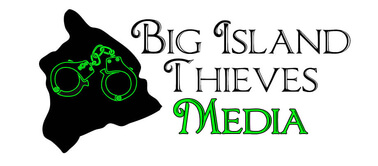
Kiwikiu (Maui parrotbill) is the most endangered native Hawaiian bird. The small yellow honeycreepers live only in high elevation forest on windward Haleakalā, Maui. With an estimated population of fewer than 150 individuals, it is at high risk of going extinct within a few years.
“Once we lose them, they’re gone forever,” said Dr. Hanna Mounce of the Maui Forest Bird Recovery Project (MFBRP). Her team and experts from the DLNR Division of Forestry and Wildlife, the U.S. Fish and Wildlife Service, American Bird Conservancy, and other supporters have spent more than a decade developing and executing plans to save the kiwikiu from the fate experienced by hundreds of other native Hawaiian animals, plants, and insects.
A major project in 2019 to move a dozen or so birds from Hanawī, on the windward side of Haleakalā, to the Nakula Natural Area reserve on the leeward side of Maui’s highest dormant volcano, involved exhaustive planning with the goal of creating a new kiwikiu population in the restored Nakula forest.
Habitat improvements to make the area suitable and attractive for kiwikiu included the planting of more than 260,000 native plants and trees, the removal of non-native predators, and fencing to keep habitat destroying goats and pigs out.
Two teams, one at Hanawī to capture birds for translocation to Nakula, and another to release and monitor the birds, carefully coordinated their efforts over the course of several weeks during the fall of 2019.
A documentary, Saving Kiwikiu- – Maui parrotbill on the brink, debuts on KHON2 on Thursday, April 29th at 9:30 p.m., with a replay on Channel 2 sister station KHII on Sunday, May 2nd at 8:00 p.m.
Kristina Lockwood, KHON/KHII General Manager said, “We are excited to help tell the story of this at-risk native bird and of the people involved in trying to save it. It’s a remarkable story, and unfortunately, one that is indicative of the tremendous threats many native species in Hawai‘i are facing now and into the future. We are very pleased to bring this story and the issue to people around the state.”
After previewing the TV special, DLNR Chair Suzanne Case remarked, “In addition to seeing, first-hand, through the experiences of all the dedicated and passionate professionals working on the kiwikiu project, viewers will see remote areas of Hawai‘i that few of us get to visit. This production really drives home not only the beauty of our landscapes, our native birds, and plants, but how critical it is that we do everything in our power to protect all these unique and special creatures and their ecosystems that make Hawai‘i the incredible place we call home.”
The television broadcasts of Saving Kiwikiu — Maui parrotbill on the brink are made possible by American Bird Conservancy and National Fish and Wildlife Foundation.



